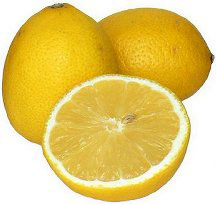Dr. Kitchiner’s spicing for stew
Dr. Kitchiner’s spicing for stews from his Cook’s Oracle double as the base for an infusion suspended in either vinegar or wine to “make a savoury relish for Soups, Sauces &c.” Kitchiner was fond of complex spice mixes and condiments; these combinations double down on the two. His proclivities further puncture the conventional wisdom that traditional English food is bland.
 For the spice mix:
For the spice mix:
- 1 teaspoon salt
- ½ teaspoom dry mustard (like Colman’s)
- ½ teaspoon black pepper
- ½ teaspoon dried lemon zest
- ¼ teaspoon allspice
- ¼ teaspoon cayenne
- ¼ teaspoon ginger
- ¼ teaspoon nutmeg
Mix everything together.
For the condiment:
Steep the mix in about a pint of vinegar for two weeks, then decant and filter out the sandy solids through a coffee filter.
Notes:
- ‘Dr.’ Kitchiner (in reality he had no degree, nor did he attend either Eton or Cambridge as he also claimed) measures his mix in ounces and, in the case of the cayenne, drachms. A drachm amounts to an eight of an ounce so it is puzzling why he segregates the measurement of the cayenne alone.
- If you make the mix for immediate use, or for use in making the infusion, there is no need to dry the zest but for storage the drying process is essential to avoid spoilage.
- You should not attempt to rush drying spice or zest. As Dr. Kitchiner explains, “if you give them much heat, the flavour of them will be presently evaporated, and they will soon get a strong rank emphyreumatic taste.” (his emphasis) That is, the mix would taste something like creosote or according to Merriam-Webster acquire ”an odor [and they might have added flavor] of burnt organic matter as a result of decomposition at high temperatures.
- To make dried lemon zest preheat the oven to 170° F, spread the zest over parchment paper on a sheetpan and bake for thirty minutes to an hour. If the zest begins to brown, remove it from the oven give it a stir and check for residual moisture. If the zest is damp return it to the oven and check every few minutes to avoid browning, and burning, the zest.
- The resourceful cooks in the galleys of Royal Navy vessels during the long eighteenth century wasted nothing. They shipped a lot of fresh lemons as well as the better known limes to combat scurvy and cooks dried and pounded the peel to make what they called lemon pepper to sprinkle as a condiment for livening savory dishes.
- Dried citrus zest (lime and orange as well as lemon) is available at (a very few) specialty shops and online.
- Any vinegar you like will do for the condiment but something with little flavor, white or white wine vinegar for examples, would showcase the spice.

